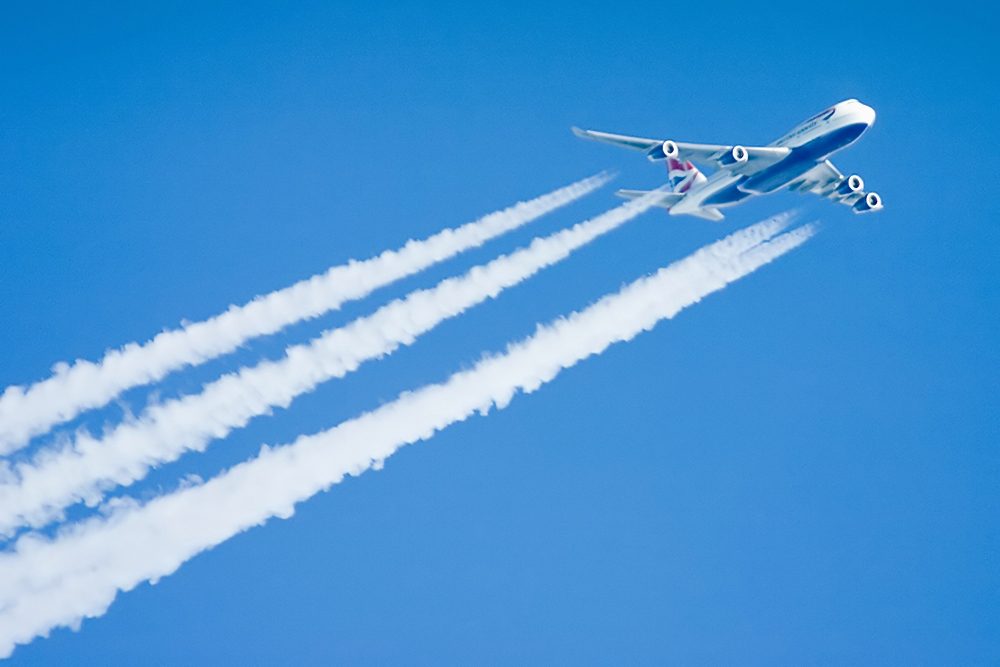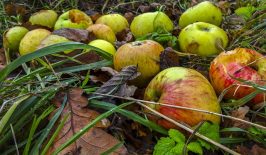Researchers from the University of California in Berkeley claim to have developed a new aviation fuel which can drastically cut down on the amount of carbon produced by aircraft. Not only that, but using their method of production could also reduce the amount of methane – another greenhouse gas – given off from landfills.
Currently, aeroplanes must use a specialised fuel that is subject to many stringent requirements and criteria in order to create the performance and reliability needed to fly large aircraft. Often these fuels are petroleum based, or consist of blends with synthetic fuel sources. The latter in particular has become increasingly popular due to the increase in aviation fuel costs. However, many of these synthetic fuels are also derived from fossil fuels such as coal or natural gas.
Now the University of California has entered a new competitor into the ring: wet waste. Generally speaking, wet waste refers to organic biodegradable food waste, such as fruit and vegetable peels, coffee powder, meat and bones, scraps, leaves and egg shells. Such products have been previously used to develop biodiesel for ground vehicles, but was deemed uneconomical and inefficient for aviation fuel. Much wet waste also goes into the production of methane gas.
However, authors of a new study, recently published in the Proceedings of the National Academy of Sciences (PNAS), discovered a method to interrupt the natural decomposition process of the wet waste to produce volatile fatty acids (VFA) as opposed to methane (CH4). These VFAs can then be passed through a form of catalytic conversion to produce two different types of sustainable paraffin.
When combined, they were able to blend 70 percent of the mixture with regular jet fuel, to create a more eco-friendly hybrid, while still adhering to aviation authority standards. Although previous jet fuels have been developed using so-called dry waste, this is the first time wet waste, including animal manure and waste water, has been used in the process. Previously, the complexity and high moisture content of the waste typically relegated its use to methane production via anaerobic digestion.
According to the study, the new fuel cuts greenhouse emissions of aircraft by 165 percent compared to fossil fuels. This figure includes the reduction in carbon produced, as well as the emissions avoided from the transporting and disposing of wet waste in landfill.
Furthermore, the new fuel also generates 34 percent less soot. Soot plays a key role in the creation of contrails and adds a warming effect to the carbon emitted by the engines.
Figures like this could be viewed with optimism by airlines struggling to reduce their carbon output. The global fuel consumption of commercial airlines has increased each year since 2009 and reached an all-time high of 96 billion gallons in 2019. Despite their being a dip in that growth in 2020 and 2021 due to the coronavirus pandemic, its expected to increase again once international travel resumes. Meanwhile, the industry has committed itself to cutting carbon emissions by 2050. Although electric-battery powered aircraft are starting to be experimented with, many airlines are sceptical of their effectiveness for long haul, larger flights. Generating new fuels which can work with existing aircraft is viewed by some as being the most viable alternative approach.
The Impact of Food Waste
Around one third of the food produced around the world goes to waste. Not only is this a huge waste of the resources needed to grow, store and transport food, but it also results in large amounts of organic waste within landfills. If left to rot, this wet waste creates methane, a greenhouse gas that per capita is more damaging than carbon. It has been suggested that food waste contributes around 8-10 percent of the gasses responsible for man-made climate change.
All of this waste is compounded by the fact the methane given off could be used for more practical purposes. Hopefully, as research such as that described above develops, such wet waste can be put to more practical and sustainable use.
Of course, the development of new aviation fuels is not the only solution to the negative climate impacts associated with flying. Indeed, some environmental groups may describe such attempts as greenwashing and not addressing the fundamental issues at play. Certainly, the most effective way to reduce carbon emissions is for frequent flyers to simply fly less. Although transcontinental travel may still require flights, for internal domestic travel many more sustainable alternatives could be further developed, promoted and made more financially accessible – including already existing land transportation such as trains.
Currently, the University of California fuel is undergoing plans to scale up production. They hope it will be trialled by Southwest Airlines in 2023.






